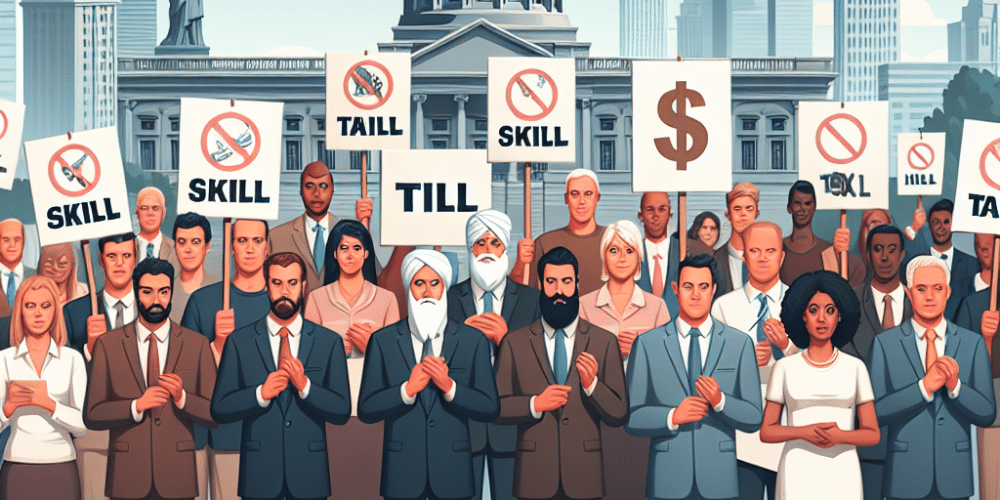This week, about one hundred small business owners, vendors, and supporters of local communities gathered at the Hershey Italian Lodge. They were there to seek equitable rules and reasonable tax rates for skill games in Pennsylvania. The event, which combined elements of a rally and a town hall debate, highlighted the significance of these machines as a financial lifeline for local businesses striving to stay afloat.
The gathering made it clear that the proposed legislation on skill game taxation could determine whether neighborhood bars, restaurants, and volunteer organizations can continue benefiting from the revenue generated by these games. Unlike traditional slot machines, skill games require a degree of player interaction and have been operating in a legal gray area, pending a definitive ruling from the Pennsylvania Supreme Court.
Representatives from the House of Pizza in Lancaster emphasized the benefits skill games bring to their operations, according to WGAL 8 News. The income from these games helps them afford crucial expenses, such as overtime pay for staff and maintaining affordable menu prices, while also supporting local charitable initiatives. Without the revenue from skill games, they warned, combating inflation and escalating operational costs would become significantly more challenging.
The focus of the rally was not whether skill games should be taxed, but the level of taxation they should face. Governor Josh Shapiro has proposed a tax rate of 52%, which aligns with what casinos currently pay. However, other lawmakers have suggested lower rates. Senator Gene Yaw’s Senate Bill 626 proposes a tax rate of 16%, while Senator Chris Gebhard’s Senate Bill 756 suggests a middle ground with a 35% rate. Many small business owners at the event expressed they could manage a tax rate between 15% and 20%. They warned that higher rates could compel them to scale back their operations or reduce their workforce.
Willie Shay, a proprietor of a business that has been in his family for four generations in Lebanon County, cautioned that exorbitant taxes would exert undue pressure on local enterprises and the charities that depend on their contributions. He urged lawmakers to ensure that small businesses are not “regulated out of existence” during upcoming budget negotiations.
Advocates at the event also highlighted the broader impact of skill game revenue on communities. During the rally, attendees donated $19,000 to the Christiana Volunteer Fire Company in Lancaster County to upgrade its security system following a recent theft. Fire company president Michael Ross noted that this generous contribution underscored the vital role local support plays for emergency services.
While political debates over various tax proposals continue, business owners are urging the state to finalize an agreement that addresses their needs without imposing onerous taxes. Many participants left the Hershey event feeling hopeful that Pennsylvania will establish fair and consistent regulations. Such rules would enable small businesses to thrive and sustain their contributions to the state’s economy.
In the broader context, these discussions reflect an ongoing national dialogue about the roles and responsibilities of local businesses within the economy. Small businesses have long been recognized as the backbone of the American economy, providing employment and fostering community development. However, they often operate with tighter margins and fewer resources compared to larger corporations, making them more vulnerable to regulatory changes and economic shifts.
The Pennsylvania skill games debate parallels other states grappling with similar issues, where lawmakers and business owners strive to find a balance between generating tax revenue and supporting local economic growth. The core of these debates often revolves around how to foster an environment where small businesses can compete fairly while contributing to public coffers through reasonable taxation.
Detractors of lower tax rates argue that the state needs robust tax revenues to support public services such as education, infrastructure, and public safety. They contend that skill games, akin to other forms of gambling, should contribute their fair share. Proponents of higher taxes suggest that such measures ensure that all gaming operations, regardless of size or type, contribute equitably to state funds.
Conversely, supporters of lower tax rates for skill games assert that these businesses are distinct from larger casino operations and should not be burdened with comparable tax obligations. They argue that skill games are not merely gambling devices but a form of entertainment that requires skill and decision-making, thus justifying a different tax treatment.
Ultimately, the outcome of this debate in Pennsylvania could set a precedent for how other states approach the taxation of skill games and similar small business revenue streams. It remains to be seen whether the state will adopt a policy that empowers small businesses to remain viable while ensuring they contribute adequately to state revenues. As the legislative discussions unfold, stakeholders on all sides will continue to watch closely, advocating for solutions that align with their interests and the broader economic good.

David Garato is a luminary in gaming journalism, renowned for peeling back the curtain on the gaming world with his witty and insightful commentary. A decade into weaving stories from the pixelated edges of indie games to the expansive universes of AAA titles, David’s work is a thrilling blend of analysis and adventure. When not writing, he’s live-streaming, sharing his gaming exploits with an engaged and growing audience. David doesn’t just write about games; he lives them, making him a trusted guide in the gaming community.
















